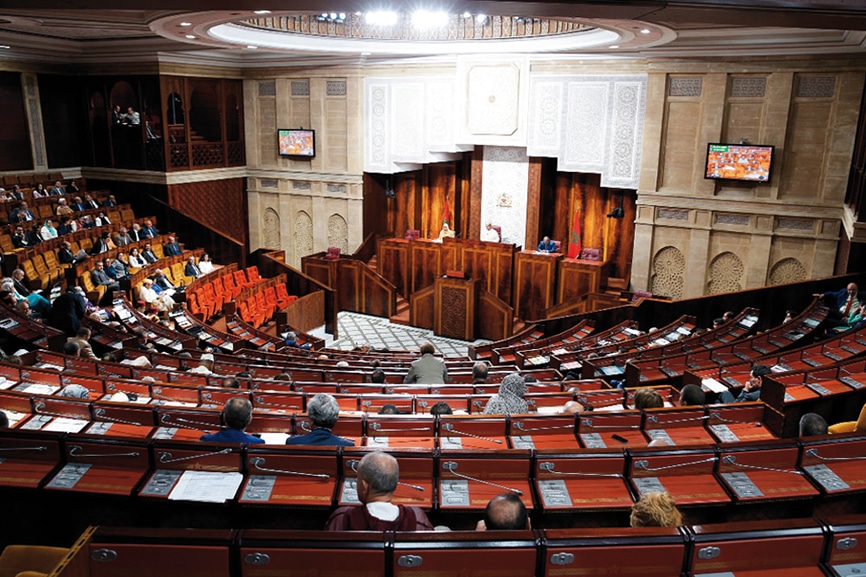Introduction: legal framework
Companies in Morocco that wish to hire foreign employees must follow a specific procedure that is regulated by the Moroccan labor code law no 65-99 (The “Labor Code”) as promulgated by Dahir no. 1-03-194 of September 11, 2003, in particular Chapter 5, Article 516, which stipulates that “any employer wishing to recruit a foreign employee must obtain authorization from the government authority responsible for labor. This authorization is granted in the form of a visa affixed to the employment contract”.
The process of hiring foreign employees in Morocco is regulated by the Labor Code and by the following legal dispositions:[1]
- Order of the Minister of Employment n° 350-05 of February 9, 2005 establishing the foreign employment contract;
- Order of the Minister of Employment n° 1391-05 of November 25, 2005 ;
- Joint note on the implementation of a specific procedure for granting residence permits to foreign investors and rare skills (September 2015) by the ministries of Interieur, Employment, Industry with the-DGSN-ANAPEC-AMDI
- Resolution N°04 of the ANAPEC Board of Directors of 29/06/2016 and its amendment of 30/06/2017.
This article outlines in the first part (I) the process of hiring foreign employees in Morocco with focus on the procedure of acquiring the work certificates from the relevant government agency in charge of recruitment of foreign employees and in second part (II) the process of acquiring the employment contract from the ministry of labor, and in the third part (III) the professions and nationalities that are exempt from the above-mentioned recruitment formalities to conclude with the residency process.
Part I. Procedure for granting activity certificates to foreign employees in Morocco
The process for granting the activity certificates is administered by the National Agency for the Promotion of Employment and Skills (“Anapec”). It is a process that formally takes 30 days upon submission of the relevant documents by the employer with acknowledgement of receipt. However, in practice, it can take up to 60 days for the Anapec to study the file and call for tender in the employment market if there’s any eligible local candidate for the position.
Documents to be deposited at the head office (DIRECTION GENERALE. 4, Lotissement La Colline Entree B Sidi Maarouf Bp 188, Casablanc, Casablanca 20100):
a. Letter of request for activity certificate addressed by the company to the ANAPEC General Manager
b. Employer’s identification sheet in accordance with the model provided by ANAPEC
c. Job description sheet in accordance with the model provided by ANAPEC
d. Sample advertisement in accordance with the template
e. The foreign employee’s curriculum vitae
f. Copies of diplomas
g. Copies of work certificates
h. A copy of the company’s Trade Register (Model J)
i. A copy of the “identity” page of the foreign employee’s passport.
Once the activity certificate is ready, Anapec invoices the company 5,000MAD.
However, it should be noted in the case of the following outcomes:[2]
Firstly, if one or more profiles exist, the list of shortlisted candidates is forwarded to the company for interview and selection;
And if the company decides that the profile does not exist among the candidates, a report is drawn up and forwarded to the Ministry of employment.
Part II. procedure for granting the foreign workers contract
Upon receipt of the positive work certificate of activate from the Anapec, the next steps to obtain the employment contract from the ministry of labor:
- The company must register on the Taechir website (https://taechir.travail.gov.ma:4433/admin/login)
- Request a foreign employment contract[3] and submit all related information
- Print out the edited contract (the company can add a small section directly related to the position, as it’s a very generic contract, with only 3 about sections), sign and stamp it
- The company representative must go to the Taechir office (in Hay Mohammedi, near the Ain sebaa-hay mohammedi labor inspectorate) to file the contract and obtain the work visa.
The file to submit for the employment contract to the ministry of labor must be as follows:
A. for a first-time employment contract
The employer must attach the following documents to the contract:
- Printout of the request for visa of the employment contract in (2) two copies, signed by the foreign employee concerned ;
- Printout of the foreign employee’s employment contract in (5) five original copies
- Diplomas obtained by the employee and his/her technical qualifications
- Copies of first pages of passport
- Certificate issued by Anapec stating that the skills required for the position in question are not available in Morocco.
B. For the renewal of an employment contract
- Printout of the request for visa of the employment contract in (2) two copies, signed by the foreign employee concerned ;
- Printout of the foreign employee’s employment contract in (5) five original copies
- Certificate of contribution to the social security of the employee for the last 3 months
- Copy of the residence permit in Morocco
- Certificate issued by Anapec stating that the skills required for the position in question are not available in Morocco.
The process to obtain the employment contract from the ministry of labor takes from ten (10) days to one month.
It should be noted that in practice, together the procedure to obtain the work certificate from the Anapec and the employment contract from the ministry of labor can take up to six (6) months.
Part III. Professions that are exempt from the Anapec formalities
However, it should be noted that this ANAPEC certificate is not required for certain categories of foreign employees, notably:
- Foreigners born in Morocco or to a Moroccan mother;
- Foreigners residing in Morocco continuously for at least ten years;
- Foreigners married to Moroccan women and foreigners married to Moroccan men;
- Partners and shareholders in a company’s capital;
- Persons seconded to foreign institutions for a fixed period;
- Delegates working in a cooperative capacity for a period not exceeding six months;
- Foreign sports trainers and players, subject to authorization by the authorities in charge of the sports sector;
- Foreign artists, authorized by the Direction Générale de la Sûreté Nationale (the « DGSN »);
- Political refugees and stateless persons.
What happens upon receipt of the employment contract to apply for the residence permit?
Normally, what happens is that the employee then makes a request for a residence permit from the relevant administration with submission of a particular set of documents. To acquire the residence permit, it takes about three (3) weeks to receive the temporary ID in form of a receipt until the finale residence card is offered in one (1) to two (2) months.
The following are the set of documents submitted to obtain the residence:[4]
- Yellow (2) and white (3) forms given by the administration
- 8 passport photos (3.5*4.5)
- 2 certified copies of passport (identity page and page with last stamp and entry date into Morocco)
- Lease contract in your name with legalized signature and certified photocopy.
- Copy of utility bill
- Certified copy of family record book (all pages)
- Birth certificate
- Medical certificate
- Work contract and certified photocopy
- Criminal record obtained from the ministry of justice
The process of hiring foreign employees can present its own challenges for companies that would like to expedite the onboarding processes of their new foreign recruits. Therefore, Westfield is available to assist in the necessary formalities to acquire the work certificate with the Anapec, through to obtaining the employment contract with the ministry of labor and advising the expatriates with their cumbersome visa needs.
Our firm, WESTFIELD, is one of Morocco’s leading national and international business law firms. Our team is dedicated to serving our clients in a full range of Moroccan legal matters as the above mentioned.
Kakoma Chinyama – Legal Associate – Westfield Morocco
References
- The Labor Code, law 65-99
- Anapec information document headlined «procedure d’octroi de l’attestation d’activite en faveur des salaries etrangers au maroc »
- Article by avocat Jawri Maha of 26 May 2022, headlined “L’embauche des étrangers au Maroc”
- Order of the Minister of Employment n° 350-05 of February 9, 2005
- https://www.rabataccueil.org/fr/page.php?choix=86
[1] Anapec information document headlined «procedure d’octroi de l’attestation d’activite en faveur des salaries etrangers au maroc »
[2] Article by avocat Jawri Maha of 26 May 2022, headlined “L’embauche des étrangers au Maroc”
[3] Order of the Minister of Employment n° 350-05 of February 9, 2005


